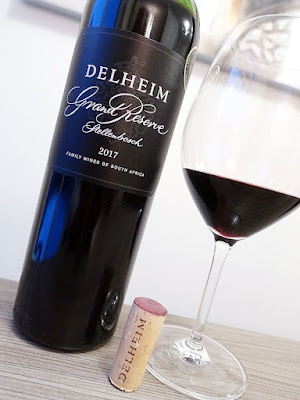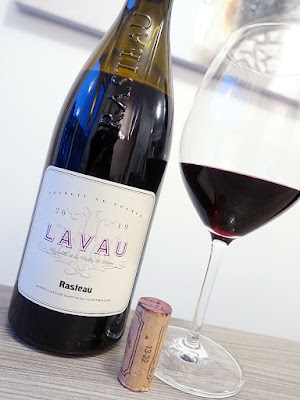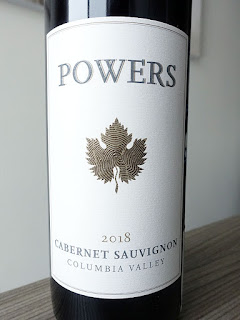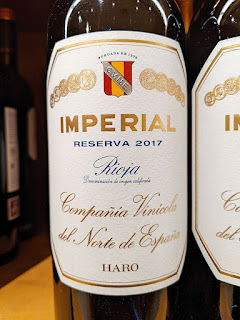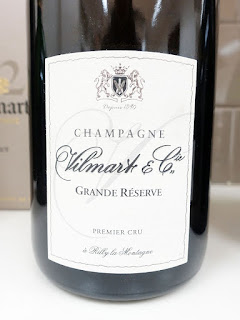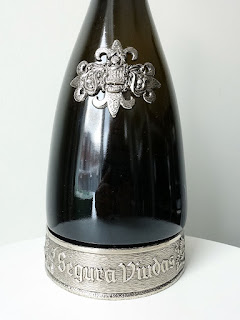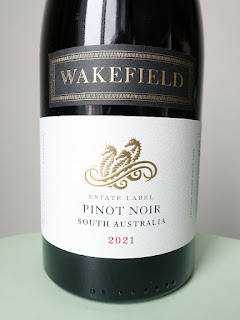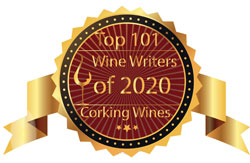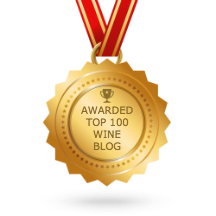red wine review is an excellent Bordeaux variety blend from South Africa that newly arrived at the LCBO over the weekend as part of the LCBO VINTAGES Release.
Delheim Wines is a family business that was established in 1938 when Hans Otto Hoheisen purchased the farm, which had various owners over the years, as a retirement home for himself and his wife Deli. The name "Delheim" is German for "Deli's home". They started by planting citrus trees but quickly discovered that the area wasn't suited to Delheim because of the windy conditions. Their German friends suggested that they grow vineyards and two years later Hans Otto planted his first grape vines.
In 1944, the concrete tanks in the cellar were completed by Italian prisoners-of-war. Several years later, Deli mentioned to her nephew in Germany that she needed help on the wine farm in South Africa, and because he didn't see a future in post-war Germany, he decided to join them and arrived in South Africa in 1951. Her nephew's name was Michael "Spatz" Sperling - Sperling is the German word for "sparrow" and Spatz means "baby sparrow".
Michael Sperling soon took a keen interest in the few vineyards Hans Otto had planted. As Michael knew nothing about winemaking, and there were no books or winemaking schools in South Africa at the time, he taught himself through a process of trial and error and with some help from neighbours and visiting German winemakers. Over time, Spatz established himself as a serious winemarker and garnered numerous awards. He also embarked on a series of pioneering initiatives in the South African wine industry over the ensuing decades.
In 1971, patriarch Spatz Sperling’s far-sightedness led him to buy 80 hectares of prime red-wine land on the Klapmutskop mountain, about 3 kilometres from Delheim, as the crow flies in a westerly direction. This property was called Delvera in honour of Spatz’s wife, Vera, while the vineyards are called Vera Cruz - Cruz meaning "cross", allegedly for the cross Vera has had to bear during her long marriage to Spatz! With its warmer, drier climate, and sandier soils, Vera Cruz was better suited to growing high-quality red wines. Delvera is planted mainly with Cabernet Sauvignon, predominantly grown as bush vines and today aged between 15 and 37 years, along with some Merlot and Cabernet Franc.
Today, Delheim is owned by the Sperling family. Vera still resides on the farm, while the late Michael Hans "Spatz" Sperling is the Patriarch and a South African wine industry legend. Their eldest son, Victor Sperling, and eldest daughter, Nora Sperling-Thiel, serve as Directors of the company and live on the farm with their families, while their other two children, Maria and Nicholas, live in Europe.
In the vineyard, their philosophy is that they are custodians of the land and must tread lightly in order to minimize the impact they have on it, as well as creating balance and harmony in the vineyards. They also strive to gain a sense of timelessness by allowing their vineyards to grow old, tell their stories and allowing the wines to gain a sense of place, while also keeping an eye on the future, seeking longevity and sustainability. Delheim also practices precision farming by embracing technologies to improve the quality of their vineyards and grapes.
This red wine is a blend of 90% Cabernet Sauvignon, 8% Merlot, and 2% Cabernet Franc that was grown on their Vera Cruz property. The soil at Vera Cruz has an Oakleaf profile with mainly decomposed granite, and faces southwest on a slope between 220 to 280 metres above sea level. The grapes were handpicked and in small batches and fermented in a combination of open-top fermenters and vertical stainless steel tanks. The was was matured in 300 L French oak barrels for 18 months, and only the finest barrels were selected for this Grand Reserve blend.
From an excellent vintage, let's see how this 2017 Cabernet Merlot blend from South Africa is tasting tonight...
A blend of 90% Cabernet Sauvignon, 8% Merlot, and 2% Cabernet Franc. The highly aromatic nose is fresh and fragrant with ripe blackberry, black currant, fine wood spices, and savoury earth aromas, with intriguing touches of cassis, tomato leaf, and graphite. It's full-ish bodied on the dry, chewy palate with very good concentration and complex, lightly tangy flavours of ripe dark berry, blackberry, currant, tomato leaf, and some pipe tobacco and graphite notes. It has fresh, juicy, and well-balanced acidity, while the structured tannins are smooth, refined, and well-integrated. There's a pleasing, subtly chalky mouthfeel on the back palate. Savoury, graphite mineral notes linger on the long, very satisfying finish. Maturing nicely, enjoy this delicious, highly recommended buy to the end of the decade. Score: 92+ pts
Other lovely wines by Delheim can be ordered through their Agent - Noble Estates Wines & Spirits.
Delheim Wines is a family business that was established in 1938 when Hans Otto Hoheisen purchased the farm, which had various owners over the years, as a retirement home for himself and his wife Deli. The name "Delheim" is German for "Deli's home". They started by planting citrus trees but quickly discovered that the area wasn't suited to Delheim because of the windy conditions. Their German friends suggested that they grow vineyards and two years later Hans Otto planted his first grape vines.
In 1944, the concrete tanks in the cellar were completed by Italian prisoners-of-war. Several years later, Deli mentioned to her nephew in Germany that she needed help on the wine farm in South Africa, and because he didn't see a future in post-war Germany, he decided to join them and arrived in South Africa in 1951. Her nephew's name was Michael "Spatz" Sperling - Sperling is the German word for "sparrow" and Spatz means "baby sparrow".
Michael Sperling soon took a keen interest in the few vineyards Hans Otto had planted. As Michael knew nothing about winemaking, and there were no books or winemaking schools in South Africa at the time, he taught himself through a process of trial and error and with some help from neighbours and visiting German winemakers. Over time, Spatz established himself as a serious winemarker and garnered numerous awards. He also embarked on a series of pioneering initiatives in the South African wine industry over the ensuing decades.
In 1971, patriarch Spatz Sperling’s far-sightedness led him to buy 80 hectares of prime red-wine land on the Klapmutskop mountain, about 3 kilometres from Delheim, as the crow flies in a westerly direction. This property was called Delvera in honour of Spatz’s wife, Vera, while the vineyards are called Vera Cruz - Cruz meaning "cross", allegedly for the cross Vera has had to bear during her long marriage to Spatz! With its warmer, drier climate, and sandier soils, Vera Cruz was better suited to growing high-quality red wines. Delvera is planted mainly with Cabernet Sauvignon, predominantly grown as bush vines and today aged between 15 and 37 years, along with some Merlot and Cabernet Franc.
Today, Delheim is owned by the Sperling family. Vera still resides on the farm, while the late Michael Hans "Spatz" Sperling is the Patriarch and a South African wine industry legend. Their eldest son, Victor Sperling, and eldest daughter, Nora Sperling-Thiel, serve as Directors of the company and live on the farm with their families, while their other two children, Maria and Nicholas, live in Europe.
In the vineyard, their philosophy is that they are custodians of the land and must tread lightly in order to minimize the impact they have on it, as well as creating balance and harmony in the vineyards. They also strive to gain a sense of timelessness by allowing their vineyards to grow old, tell their stories and allowing the wines to gain a sense of place, while also keeping an eye on the future, seeking longevity and sustainability. Delheim also practices precision farming by embracing technologies to improve the quality of their vineyards and grapes.
This red wine is a blend of 90% Cabernet Sauvignon, 8% Merlot, and 2% Cabernet Franc that was grown on their Vera Cruz property. The soil at Vera Cruz has an Oakleaf profile with mainly decomposed granite, and faces southwest on a slope between 220 to 280 metres above sea level. The grapes were handpicked and in small batches and fermented in a combination of open-top fermenters and vertical stainless steel tanks. The was was matured in 300 L French oak barrels for 18 months, and only the finest barrels were selected for this Grand Reserve blend.
From an excellent vintage, let's see how this 2017 Cabernet Merlot blend from South Africa is tasting tonight...
Tasting Note:
DELHEIM GRAND RESERVE 2017 - WO Stellenbosch, South Africa (#26094) (XD) - $31.95A blend of 90% Cabernet Sauvignon, 8% Merlot, and 2% Cabernet Franc. The highly aromatic nose is fresh and fragrant with ripe blackberry, black currant, fine wood spices, and savoury earth aromas, with intriguing touches of cassis, tomato leaf, and graphite. It's full-ish bodied on the dry, chewy palate with very good concentration and complex, lightly tangy flavours of ripe dark berry, blackberry, currant, tomato leaf, and some pipe tobacco and graphite notes. It has fresh, juicy, and well-balanced acidity, while the structured tannins are smooth, refined, and well-integrated. There's a pleasing, subtly chalky mouthfeel on the back palate. Savoury, graphite mineral notes linger on the long, very satisfying finish. Maturing nicely, enjoy this delicious, highly recommended buy to the end of the decade. Score: 92+ pts
Other lovely wines by Delheim can be ordered through their Agent - Noble Estates Wines & Spirits.
